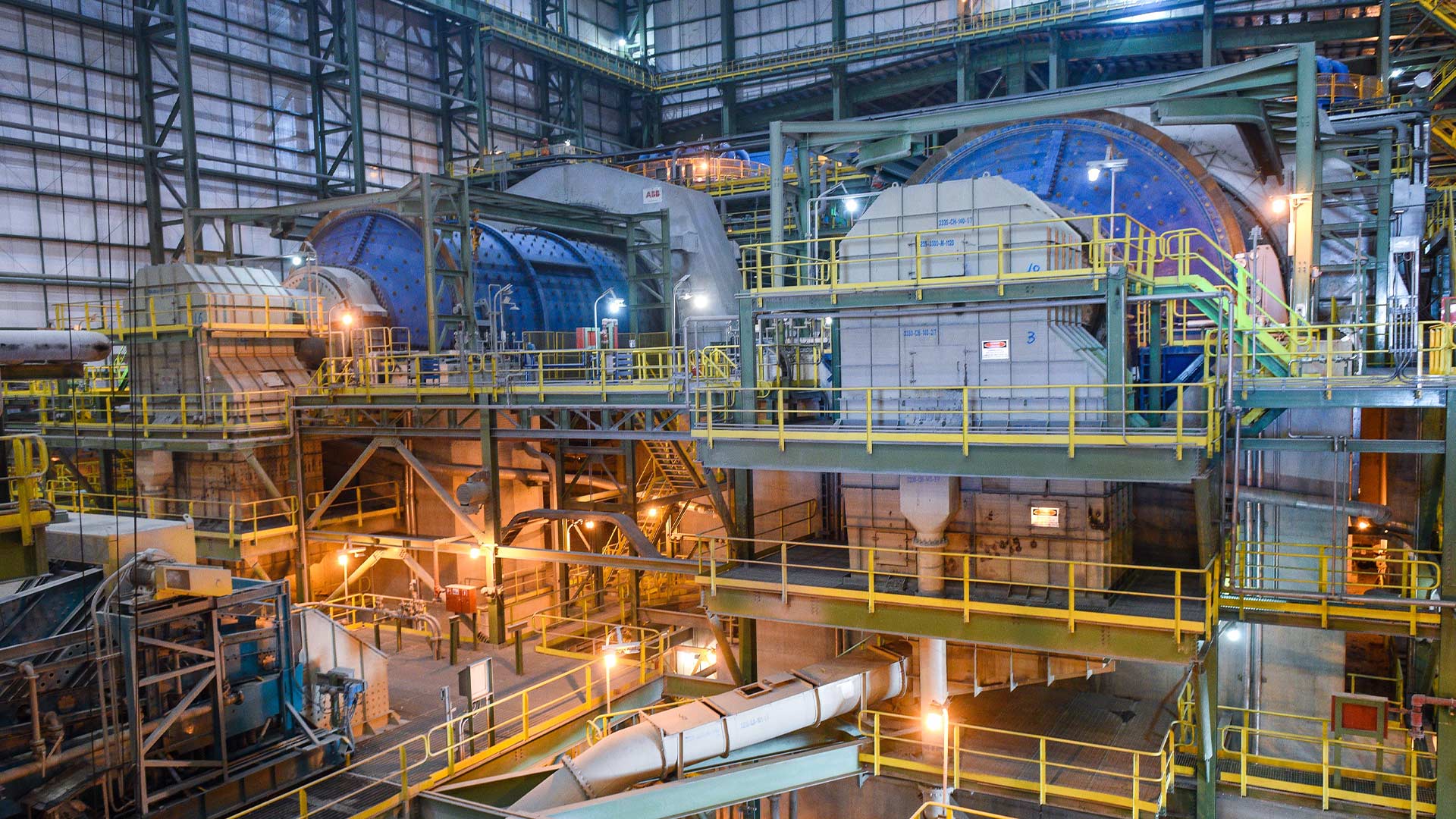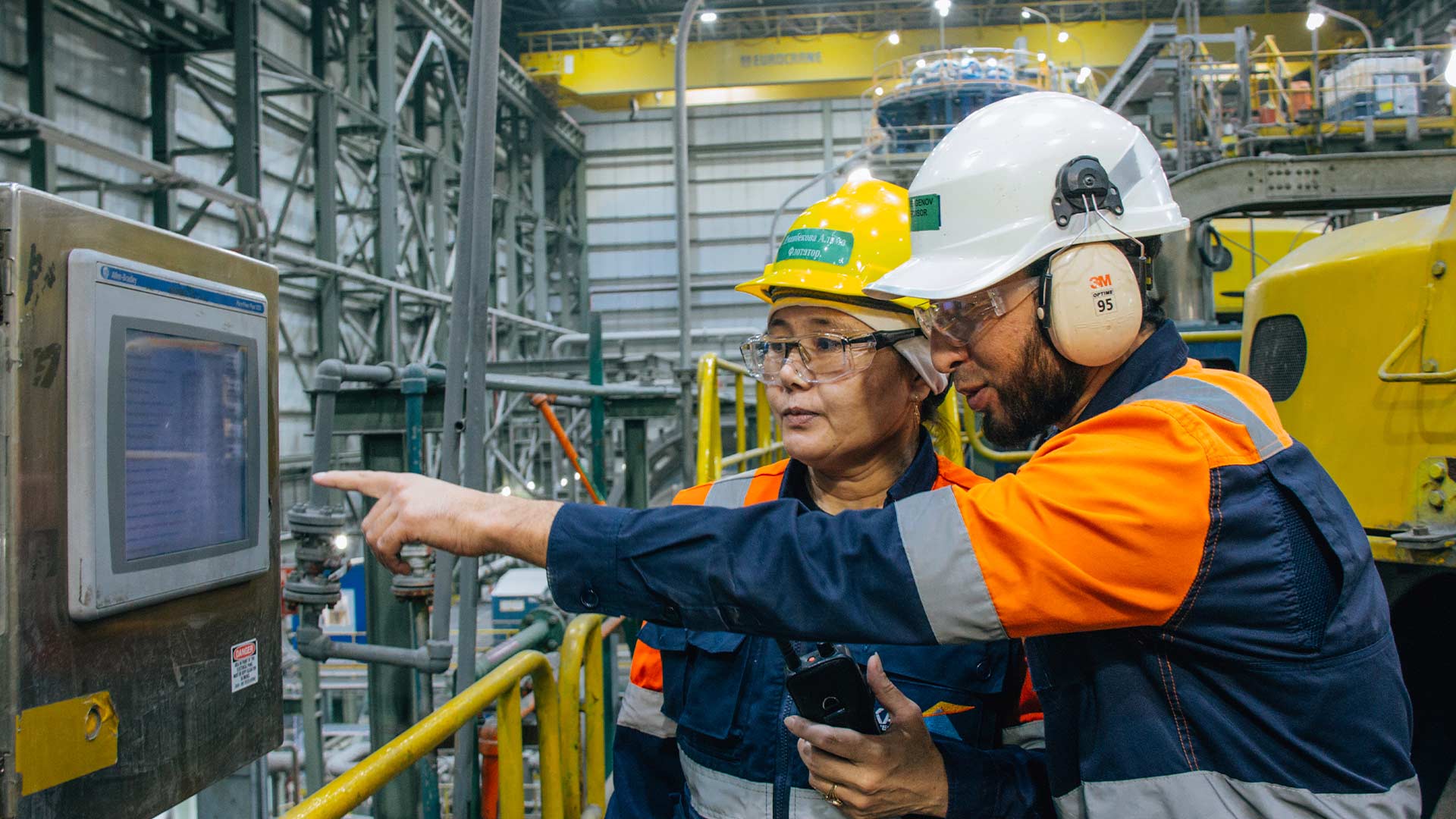
Water
Managing water responsibly across all operations
KAZ Minerals is committed to responsible and efficient water use at all stages of its mining operations. We prioritise water conservation, recycling, and minimising environmental and community impact through careful planning, ongoing monitoring, and strong governance.
Planning and assessment for new projects
Before construction begins on any new mining project, we carry out detailed water source analysis to understand the availability of fresh water and any potential impact on surrounding communities and ecosystems. These assessments are an integral part of all scoping and feasibility studies. Our Projects Division and senior management evaluate these findings carefully, ensuring that environmental and social factors are fully considered before any development is approved.
Water availability and use at existing sites
All current KAZ Minerals mining and processing sites have access to sufficient fresh water to meet their designed capacity. The Aktogay and Bozshakol sulphide concentrators are specifically designed for water efficiency, using processes that reduce consumption and limit evaporation losses. Across the Group, we work to recycle and reuse as much water as possible, with primary sources of recycled water coming from tailings storage facilities and mine water inflow.


Governance and oversight
Our water use strategy is guided by the Group’s Environmental Policy and overseen by the Health, Safety and Sustainability Committee. At the operational level, General Directors are responsible for identifying and implementing water efficiency initiatives. This governance structure ensures accountability and consistency across all sites.
Performance in 2024
Total water withdrawal in 2024 increased by 2% to 58,186 megalitres, up from 56,811 megalitres in 2023. This increase was largely due to higher ore throughput across the Group. At Aktogay, water use rose by 6%, reflecting a 7% increase in ore processed. Bozshakol limited its increase in water withdrawal to just 1%, despite processing 6% more ore, thanks to improvements in recycling from the tailings storage facility. In contrast, East Region saw a 10% decrease in water withdrawal, following the planned shutdown of the lead concentrate section at the Nikolayevsky plant due to changes in ore feed composition.
Water withdrawal by site (megalitres)
| 2024 | 2023 | |
|---|---|---|
| Aktogay | 34,852 | 32,803 |
| Bozshakol | 14,883 | 14,718 |
| East Region | 7,864 | 8,745 |
| Bozymchak | 587 | 545 |
| Total | 58,186 | 56,811 |
Reducing water intensity
The Group’s average water withdrawal intensity fell to 0.60 cubic metres per tonne of ore processed in 2024, down from 0.63 in 2023. This improvement was driven by higher recycling rates at Bozshakol and reduced water use at East Region. These results reflect our ongoing commitment to improving water efficiency through operational upgrades and best practices across all sites.
Water withdrawal intensity (m³ per tonne of ore processed)
| 2023 | 2022 | |
|---|---|---|
| Aktogay | 0.60 | 0.60 |
| Bozshakol | 0.43 | 0.45 |
| East Region | 3.23 | 3.66 |
| Bozymchak | 0.56 | 0.46 |
| Group average | 0.60 | 0.63 |